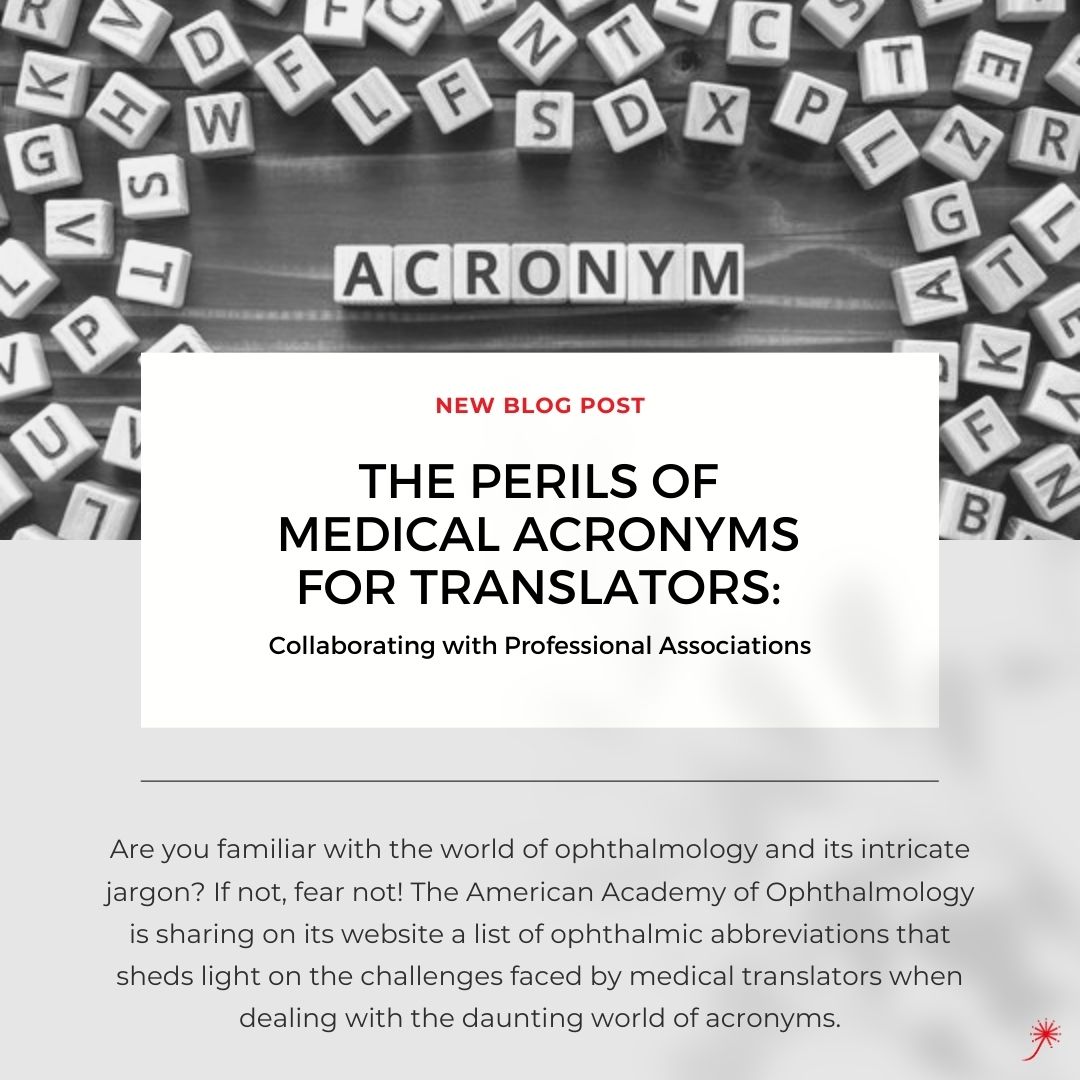Are you familiar with the world of ophthalmology and its intricate jargon? If not, fear not! The American Academy of Ophthalmology is sharing on its website a list of ophthalmic abbreviations that sheds light on the challenges faced by medical translators when dealing with the daunting world of acronyms.
Medical acronyms serve as a shorthand language within the healthcare community, facilitating quick communication and precise documentation. However, for translators tasked with conveying medical knowledge across languages, these abbreviations can present a formidable obstacle.
One of the key hurdles faced by medical translators is the inconsistency and ambiguity of acronyms. With numerous abbreviations often overlapping across medical disciplines, context becomes crucial for accurate translation. A single acronym can have multiple meanings, further complicating the task at hand.
Moreover, the constant evolution of medical knowledge adds to the challenge. New terms and acronyms emerge regularly, leaving translators with the arduous task of staying up-to-date and adapting to the ever-changing landscape of medical terminology. To overcome these hurdles, translators employ various strategies. Extensive research and collaboration with subject matter experts become imperative. By building a solid foundation of medical knowledge and remaining in constant contact with medical professionals, translators can bridge the gap between complex acronyms and accurate translations.
Additionally, the use of glossaries, context analysis, and comprehensive research tools can aid translators in deciphering the intended meaning behind each acronym. This meticulous approach ensures that patients, healthcare providers, and researchers can fully understand and benefit from medical information, irrespective of language barriers.
At the core of successful medical translation lies a deep commitment to precision, diligence, and ongoing education – and seeking collaboration with professional associations is always fruitful. Working hand in hand with specialists is a valuable investment of time and an optimal pooling of linguistic and specialised skills. For us, linguists, it would offer first-hand learning and gained visibility, and for associations, a great opportunity to add value by enhancing language access to multilingual services for their members.
Check out the article linked below for an exploration of some frequent acronyms used in the field of ophthalmology as an example of what would be an attainable project to execute with your reliable SME.




